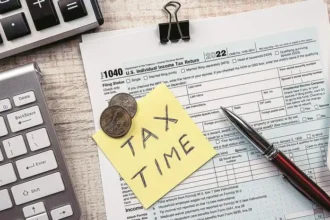In recent months, boxing legend Floyd Mayweather Jr. has found himself at the center of swirling controversies and explosive allegations regarding his finances and business dealings. Once celebrated for his undefeated boxing record and extravagant displays of wealth, Mayweather now faces public scrutiny as rumors of financial troubles and questionable investments dominate headlines. This in-depth analysis examines the scam claims, counterclaims, and reality behind what some are calling the biggest fall from grace in sports entertainment.
Overview of Floyd Mayweather’s Empire Under Siege
Floyd “Money” Mayweather, the self-proclaimed billionaire and undefeated boxing champion with a 50-0 professional record, built his brand on flamboyant displays of wealth—private jets, luxury cars, diamond-encrusted watches, and real estate portfolios. For years, he has cultivated the image of a financial genius whose business acumen rivals his boxing skills.
However, recent developments have cast a shadow over this carefully constructed empire. Former friend and rapper 50 Cent ignited public speculation by sharing a video titled “Stephen A. Smith EXPOSES Floyd Mayweather For Going BANKRUPT After $402 Million SCAM,” suggesting Mayweather’s financial house of cards might be collapsing. This has triggered intense debate about the legitimacy of Mayweather’s business ventures and his current financial standing.
The controversy largely centers around Mayweather’s grandiose claims about his real estate investments, particularly his assertion on Jimmy Fallon’s Tonight Show that he owns “over 100 buildings in New York City” and subsequent social media declarations about purchasing “62 apartment buildings” in Manhattan.
The Real Estate Claims: Separating Fact from Fiction
At the heart of the controversy are Mayweather’s statements about his real estate holdings:
- Claims of owning nine skyscrapers in New York City with a tenth under construction
- Assertions about purchasing 62 apartment buildings in Manhattan in a $42 million deal (the “Black Spruce Portfolio”)
- Statements about owning over 1,000 affordable housing units
Business Insider reportedly investigated these claims and found no public property records linking Mayweather to such extensive real estate purchases in NYC. This discrepancy between Mayweather’s public statements and verifiable records has fueled skepticism about his financial situation.
What’s particularly noteworthy is that while Mayweather has referenced a specific portfolio—the “Black Spruce Portfolio”—and specific figures ($42 million for 1,000 units), property industry experts have questioned the plausibility of acquiring such extensive holdings at those price points in today’s New York real estate market.
How the Alleged Scheme Works
According to critics and the claims made in viral content, the scheme operates through several interconnected mechanisms:
- Public Inflation of Assets: Making grandiose claims about wealth and investments to maintain an image of financial success
- Leveraging Celebrity Status: Using fame to gain credibility for business ventures without the same level of scrutiny that might apply to non-celebrity entrepreneurs
- Exhibition Fights as Financial Rescue: Participating in highly publicized exhibition matches when facing financial pressure, rather than as a natural continuation of his boxing career
- Failed Deliverables: Collecting payments for appearances, merchandise, NFTs, and other products that allegedly never materialize
Some accounts suggest that Mayweather has used his celebrity status to attract investors or buyers for various ventures, but then failed to deliver on promises—whether related to real estate, personal appearances, or digital assets like NFTs.
The Tax Issues and Legal Challenges
Beyond the real estate controversies, several specific allegations have emerged:
- IRS Troubles: Reports suggest Mayweather owed $22.2 million in back taxes to the IRS, possibly prompting his decision to come out of retirement for the lucrative Conor McGregor fight in 2017
- Jewelry Disputes: Claims about an unpaid $1.4 million diamond necklace, for which Mayweather allegedly made only partial payment
- Dubai Detention Rumors: Unverified reports that Mayweather was “trapped in Dubai” for 50 days over a debt related to jewelry theft by someone in his entourage
- NFT Project Controversies: Allegations that Mayweather promoted NFT projects that failed to deliver promised benefits to investors
The pattern that emerges is one of potential cash flow issues beneath the veneer of extreme wealth—a scenario not uncommon among high-earning celebrities who maintain expensive lifestyles.
Is Floyd Mayweather Running a Scam? Examining the Evidence
The question of whether Mayweather is actively engaged in fraudulent activity requires careful consideration of available evidence. Several perspectives merit examination:
The Skeptical View
Those skeptical of Mayweather’s claims point to:
- The apparent lack of verifiable property records supporting his real estate claims
- A history of tax issues suggesting possible financial mismanagement
- Multiple instances of alleged non-delivery on paid commitments
- The need to continue fighting exhibition matches well past retirement age
The Defensive Perspective
Defenders of Mayweather counter with:
- His recent display of a $100 million watch collection, suggesting continued wealth
- The complexity of high-net-worth real estate deals, which may involve shell companies and privacy structures that obscure public records
- His unquestionable career earnings, estimated at over $1 billion
- The possibility that critics like 50 Cent have personal vendettas motivating their claims
The Nuanced Reality
The most likely scenario sits somewhere between these extremes:
- Mayweather may indeed have significant wealth but perhaps not at the level he publicly claims
- His business ventures may include some legitimate investments alongside exaggerated or non-existent ones
- He might be experiencing cash flow or liquidity issues despite substantial assets
- Some of his claims may be marketing hyperbole rather than outright fraud
The distinction between misleading business practices, aggressive self-promotion, and actual fraud is critical. While Mayweather may have engaged in exaggeration, proving intentional fraud would require stronger evidence than currently appears to be available.
The Impact on Mayweather’s Legacy
Regardless of the veracity of these claims, the controversy threatens to tarnish Mayweather’s legacy. As ESPN commentator Stephen A. Smith reportedly noted, many young athletes admire Mayweather not for his boxing technique or discipline but for his wealth. If that wealth proves illusory, it could undermine his influence and status.
More concerning for Mayweather personally would be any potential legal consequences if allegations of tax evasion or investment fraud were substantiated. Such findings could lead to criminal charges, civil lawsuits, or both.
The situation also raises questions about celebrity wealth more broadly. How much of what we see on social media represents genuine financial success, and how much is carefully crafted imagery designed to maintain a brand?
Frequently Asked Questions
1. Is Floyd Mayweather Legitimately Wealthy?
Yes, but with caveats. Mayweather undoubtedly earned hundreds of millions throughout his boxing career. His fight against Manny Pacquiao alone reportedly generated around $220 million for him, and the McGregor bout was similarly lucrative. However, extraordinary spending habits, potential tax issues, and possibly unwise investments may have significantly reduced his liquid assets.
2. Did Floyd Mayweather Actually Purchase 62 Buildings in New York?
There is no conclusive public evidence supporting this claim. While Mayweather has repeatedly referenced these purchases, journalists and industry experts have been unable to verify them through public records. This doesn’t definitively prove the purchases didn’t happen, as complex real estate transactions can involve multiple entities and privacy structures, but it does raise legitimate questions.
3. Why Would Mayweather Exaggerate His Wealth?
Image and brand value. Mayweather’s “Money” persona is central to his brand. Maintaining this image helps him secure lucrative exhibition matches, endorsement deals, and appearance fees. Any public perception of financial trouble could devalue his brand and reduce future earning potential.
4. Is Floyd Mayweather Facing Bankruptcy?
No conclusive evidence suggests imminent bankruptcy. While there are rumors of financial troubles, Mayweather continues to display significant assets, including his recently showcased watch collection. However, many wealthy individuals have faced bankruptcy despite substantial visible assets, so external displays of wealth aren’t definitive proof of financial stability.
5. Should Fans Be Concerned About Investing in Mayweather-Promoted Ventures?
Caution is advisable. Given the controversies surrounding some of Mayweather’s past ventures, particularly in the NFT space, potential investors should conduct thorough due diligence before committing funds to any Mayweather-associated project. As with any investment, research beyond celebrity endorsement is essential.
Conclusion: Money, Mythology, and the Modern Celebrity
The Floyd Mayweather financial controversy illuminates the complex relationship between celebrity, wealth, and public perception in the social media age. While the full truth about Mayweather’s financial situation remains elusive, the saga serves as a cautionary tale about the dangers of conflating personal branding with financial reality.
For Mayweather, the road ahead involves both legal and reputational challenges. His response so far—displaying luxury assets while avoiding detailed financial disclosures—suggests a strategy focused on maintaining the appearance of wealth rather than addressing specific allegations.
For fans and observers, the situation offers a valuable reminder: in an era where wealth is increasingly performed for public consumption on social media, the gap between appearance and reality can be substantial. The most extravagant displays of wealth sometimes mask the most precarious financial foundations.
Whether Mayweather emerges from this controversy with his reputation and finances intact remains to be seen. What’s certain is that the boxing legend’s greatest fight may no longer be in the ring, but in the court of public opinion and possibly actual courts of law, as he defends not his championship belts but his financial legacy.



































